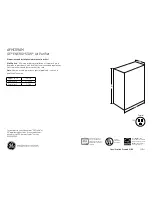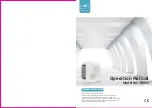
Safety--2
©
2015 Mobile Climate Control
T-367 Rev. 05/2015
SPECIFIC WARNINGS AND CAUTIONS
WARNING
Use of an electro-magnetic valve as a means of positive shutoff for service is not recom
mended for safety, or good service practice.
WARNING
Be sure to observe warnings listed in the safety summary in the front of this manual be
fore performing maintenance on the hvac system
WARNING
Read the entire procedure before beginning work. Park the vehicle on a level surface,
with parking brake applied. Turn main electrical disconnect switch to the off position.
WARNING
Do Not Use A Nitrogen Cylinder Without A Pressure Regulator
WARNING
Do Not Use Oxygen In Or Near A Refrigeration System As An Explosion May Occur.
WARNING
The Filter-drier May Contain Liquid Refrigerant. Slowly Loosen The Connecting Nuts And Avoid Con
tact With Exposed Skin Or Eyes.
CAUTION
The 50-2104 Rooftop Systems have R134a service port couplings installed on the compressor and on the unit
piping.
CAUTION
To prevent trapping liquid refrigerant in the manifold gauge set be sure set is brought to suction pres
sure before disconnecting.








































